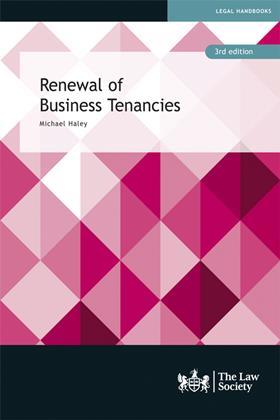War Pensions and Armed Forces Compensation: Second Edition
Andrew Bano
£95, Wildy, Simmons and Hill Publishing
★★★★★
During Queen Elizabeth I’s reign, a law was passed to allow parishes to impose a weekly tax so that disabled army veterans ‘should at their return be redeemed and regarded to the end that they may reap the fruit of their deservings and others may be encouraged to perform their endeavours’.
There were schemes to provide for disabled soldiers and seamen introduced over time, culminating in the establishment of the Ministry of Pensions in February 1917. Subsequently, the War Pension Scheme provided compensation for injury or death suffered by members of the armed forces from the second world war to 2005. The legislation was particularly generous to the applicant in placing the onus on the authorities to disprove the entitlement to benefits beyond reasonable doubt.
From 1943, the Pensions Appeals Tribunals Act provided for cases to be heard by tribunals with an appeal thereafter to High Court judges. The War Pensions Tribunal, consisting of a lawyer, medical and service members, is one of the earliest examples of tribunals as we know them today.
In 2005, the War Pension Scheme was replaced for injuries occurring after 6 April 2005 by the Armed Forces Compensation Scheme. The scheme operates on entirely different principles to those of the War Pension Scheme. However, anyone in practice who is advising service personnel and their families will need to be aware of the details of both schemes, because there are no time limits on claims under the War Pension Scheme and applications and appeals can be made in respect of existing payments.
The state has therefore always recognised its obligations to look after – with varying degrees of success – those who have served their country and to support their families. However, providing advice always proved difficult because there was no single source of information or adequate resource explaining the operation of the two schemes until the publication of the first edition of Andrew Bano’s book in 2016. He is a retired judge of the Upper Tribunal and former president of the War Pensions and Armed Forces Compensation Chamber of the First-tier Tribunal.
When that book was published, there were few decided decisions with regard to the Armed Forces Compensation Scheme. Since then, a number of issues have been clarified and amendments have been made, although there remain huge difficulties in understanding the operation of the scheme, not least in finding details of reported cases.
Judge Bano’s book is an invaluable resource and a model of clarity that fulfils his intention that it should be accessible to both lawyers and non-lawyers alike.
The book is clearly divided into two parts dealing with the War Pension Scheme and then the Armed Forces Compensation Scheme. The titles of both systems can prove confusing. All military personnel are liable to be entitled to an occupational pension, but this is entirely distinct from a war pension. Further occupational pensions can be affected by injury in service. When advising former service personnel, it may appear they are receiving one pension and it may be that they are entitled to a war pension, too. This could apply to historic hearing loss arising from events prior to 2005.
One of the books greatest strengths is its practical guide to procedures and navigating around issues likely to arise regarding time limits, appeals and reviews and how injuries are assessed.
The tariffs are set out clearly in the back of the book and the figures are up to date as at publication. Particularly useful are the discussions in the book about concepts such as injury arising ‘due to service’ as that in itself is an abstract concept, which has led to a number of cases.
You will likely find if not the answers to these questions then at least how the question should be correctly framed or represented in order to ensure that your client has the best chance of succeeding in their initial application and on a review or by way of an appeal to the First-tier Tribunal.
Legal costs or disbursements are not recoverable on either scheme and it is important therefore that both clients and practitioners are able to navigate the law and procedure without wasting precious time.
While much information continues to be available online, there is an enormous benefit in having a very handy – and authoritative – volume. The book is beautifully written and is also an interesting read in its own right.
Quite remarkably, it contains all the things that you are likely to need. Our office copy of the 2016 edition is in daily use and it is our first go-to resource on any questions that arise.
While it is intended that the old and the new schemes are non-contentious and are operated by Veterans UK in order to assist the injured service person or their family, the reality is that Veterans UK is an emanation of the Ministry of Defence. In this respect, applications and awards are routinely turned down or made at the lowest possible level.
The book is likely to provide the relevant information and guidance to deal with any questions that may arise at your fingertips with very clearly set out chapters and paragraphs. In short, this is an excellent publication and it should be close at hand for any practitioner advising personnel in personal injury, employment and occupational claims.
Jeremy Taylor is a consultant solicitor at Wace Morgan Solicitors (having previously been senior partner) specialising in military law, armed forces compensation claims and personal injury. He is a former chair of the Forces Law network
Renewal of Business Tenancies: Third edition
Michael Haley

£95, The Law Society
The renewal of business tenancies is subject to compliance with strict legal requirements and in this book, Michael Haley unravels their complexity. This third edition has been fully updated to include changes to legislation and examines developments brought about by case law since the previous 2013 edition.
































No comments yet